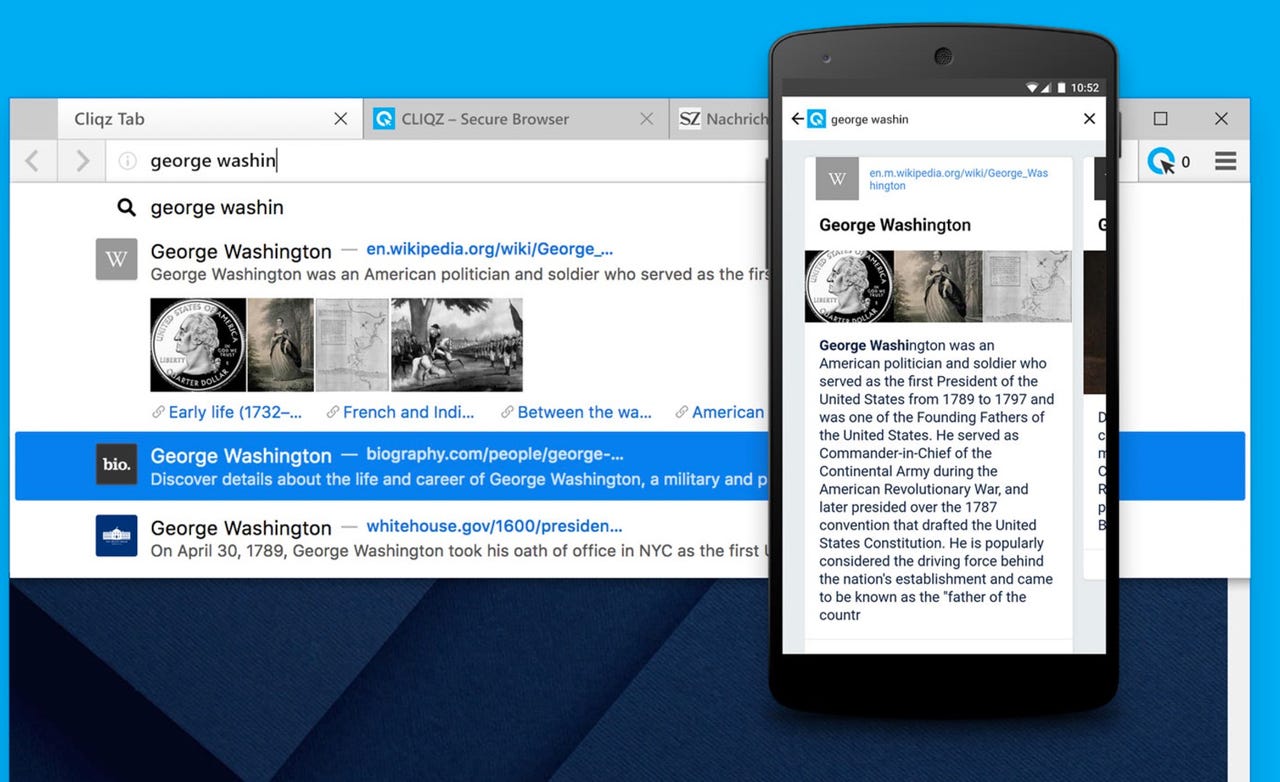Mozilla pilots Cliqz engine in Firefox to slurp user browsing data


Mozilla has launched a pilot program using Cliqz technology to pull user browsing data in Firefox.
Last week, Mountain View, CA-based Mozilla said the inclusion of the Cliqz plugin, bolt-on software which recommends links to news, weather, sport and other websites directly in the search bar based on a user's history and activities, will now be included in "less than one percent" of Firefox browser downloads taking place in Germany.
The inclusion of the add-on is part of a "small experiment" designed to improve the Firefox experience, privacy, and ease of use, according to the company.
Mozilla first made an investment into Munich, Germany-based Cliqz GmbH last year. At the time, Mozilla said the strategic investment helped "to enable innovation of privacy-focused search experiences."
At first, it seems that enforcing the download of extensions designed to grab and pick apart user data would not, by design, improve privacy or trust.
However, the Cliqz recommendations and search engine are based on a "privacy-by-design architecture technology," according to the company, and also includes a number of privacy and safety enhancements.
Among these browser improvements are anti-phishing and anti-tracking software, built up through Cliqz's acquisition of Ghostery's brand, anti-tracking software and mobile apps in 2016.
"Users who receive a version of Firefox with Cliqz will have their browsing activity sent to Cliqz servers, including the URLs of pages they visit," Mozilla says. "Cliqz uses several techniques to attempt to remove sensitive information from this browsing data before it is sent from Firefox."
"Cliqz does not build browsing profiles for individual users and discards the user's IP address once the data is collected," the firm added.
The Cliqz engine is based on "Human Web" methodology, which aims to prevent "Record Linkage" that can be used to connect a de-anonymized user to browser activities.
When information is sent to Cliqz, user identifiers which could be used to link records are forbidden, and this does not only include explicit UIDs, but also "implicit ones," according to the company.
"Consequently, aggregation of user's data in the server-side (on Cliqz premises) is not technically feasible, as we have no means to know who is the original owner of the data," Cliqz says. "This is a strong departure from the industry standard of data collection."
The recommendations engine still needs user data to build a database of addresses and sources through user activities to improve its results, but the overall idea is to collect this information through an infrastructure which guarantees this information cannot be used to identify individuals once it hits Cliqz servers.
Mozilla says the experiment represents "major changes in the way this build of Firefox performs," but should users feel uneasy about their data being collected and used, they are able to disable data collection and remove the Cliqz add-on.
"We'll keep you posted on the results of this test," says Mozilla. "Mozilla and Cliqz share a commitment to our mission and to delivering a great product. We are excited to see how users respond."
Update 17.04 BST: A Mozilla spokesperson would not discuss the pilot program further, referencing us back to the blog post.
ZDNet has reached out to Cliqz for comment and will update if we hear back.
Previous and related coverage
Mozilla decides to go after 'fake news'
The foundation will launch a 'comprehensive' assault on misinformation, once it works out exactly how to do it.
Mozilla: Firefox 57 is so fast we're calling it Firefox Quantum
Firefox Quantum will test whether Mozilla's efforts to modernize its browser can pay off.
Windows XP users: Your last supported refuge in Firefox ends in 2018, says Mozilla
Mozilla announces end of life for the extended support version of Firefox for Windows XP and Vista.